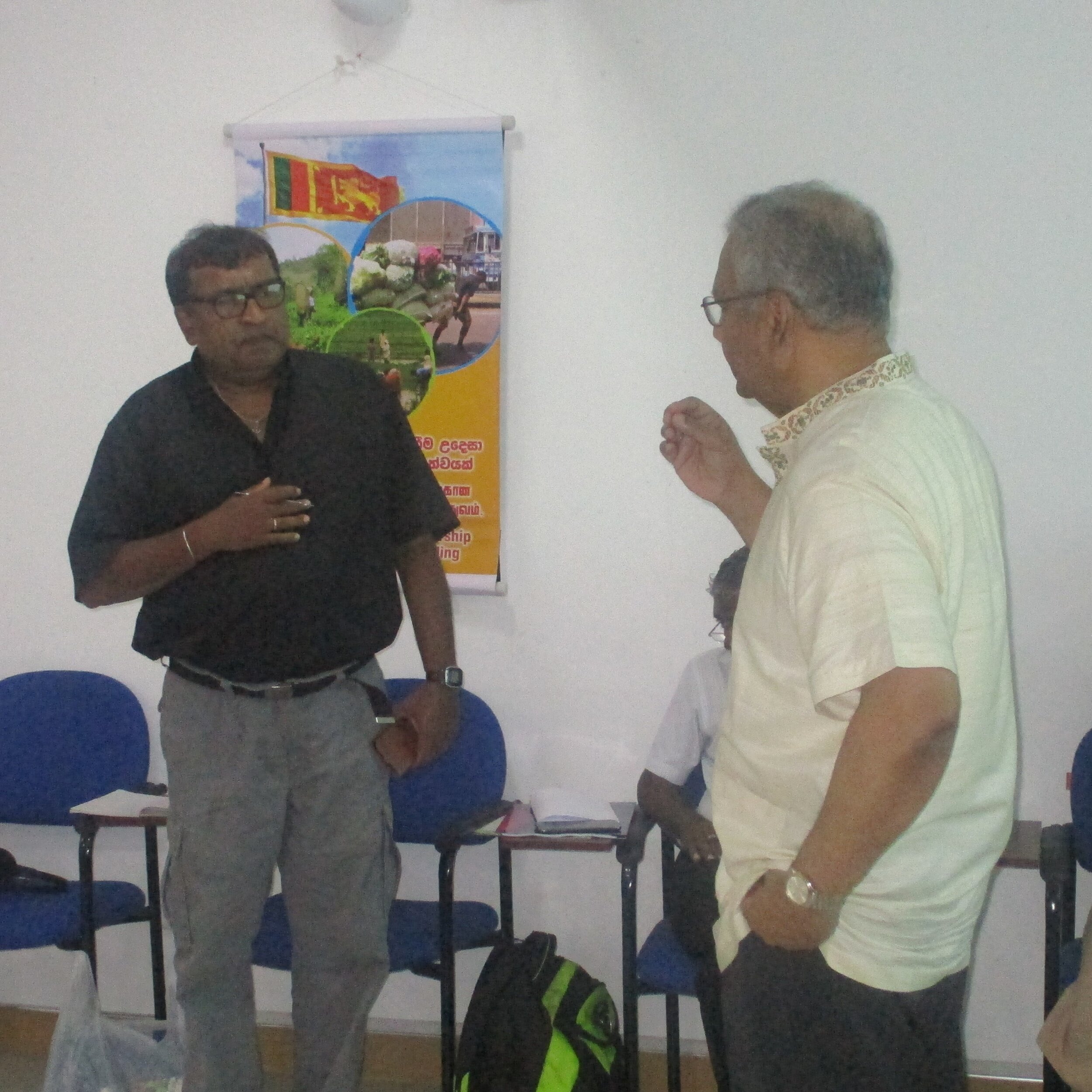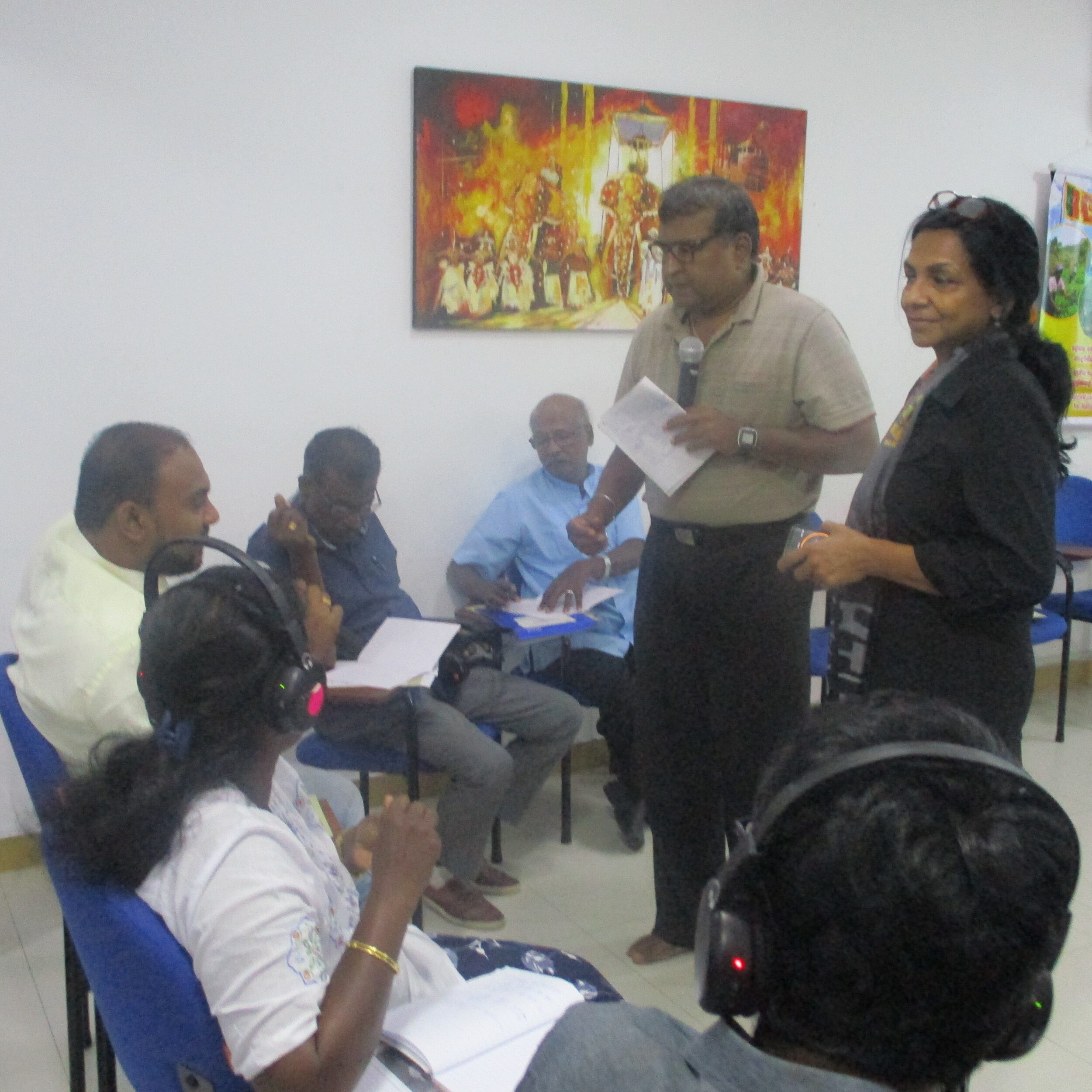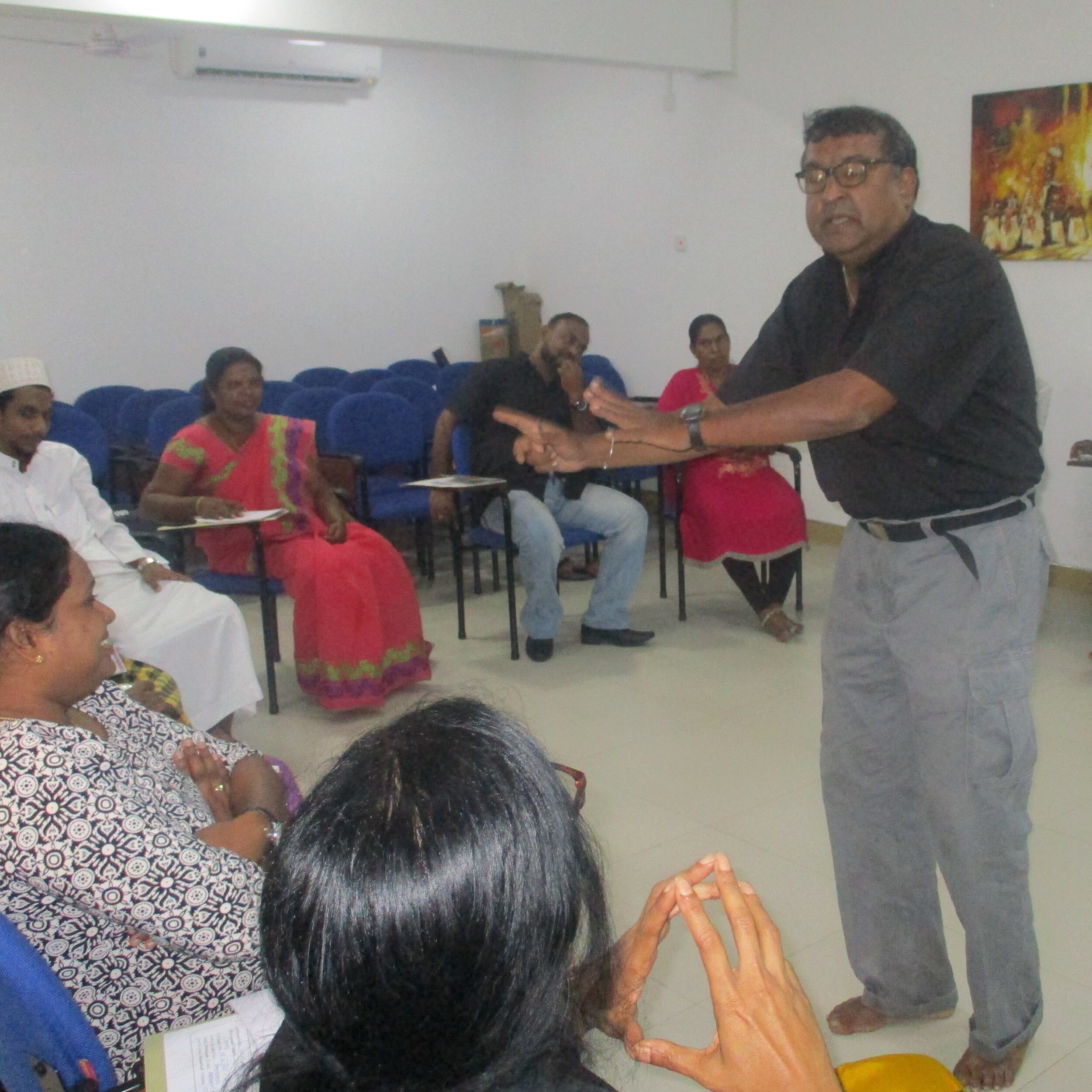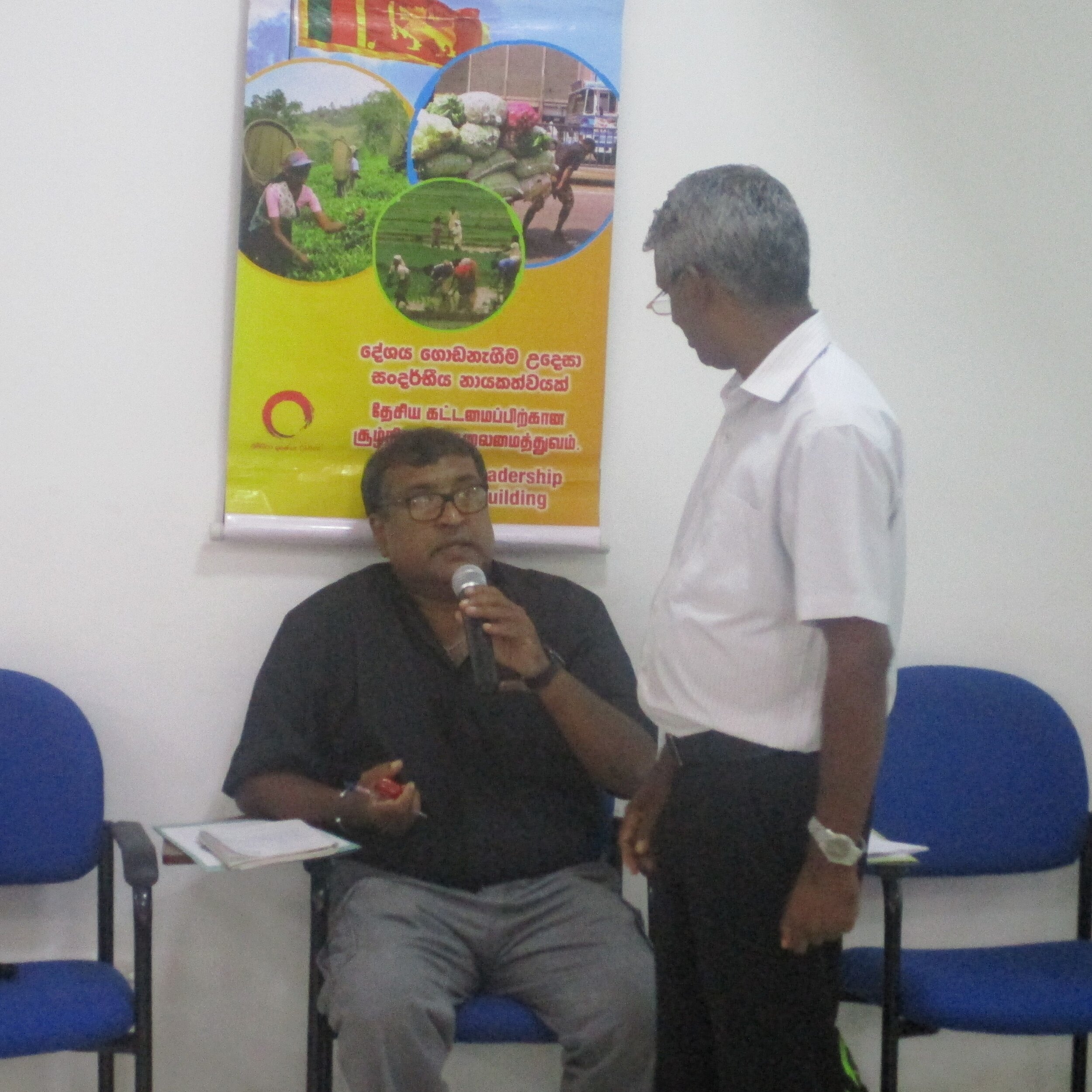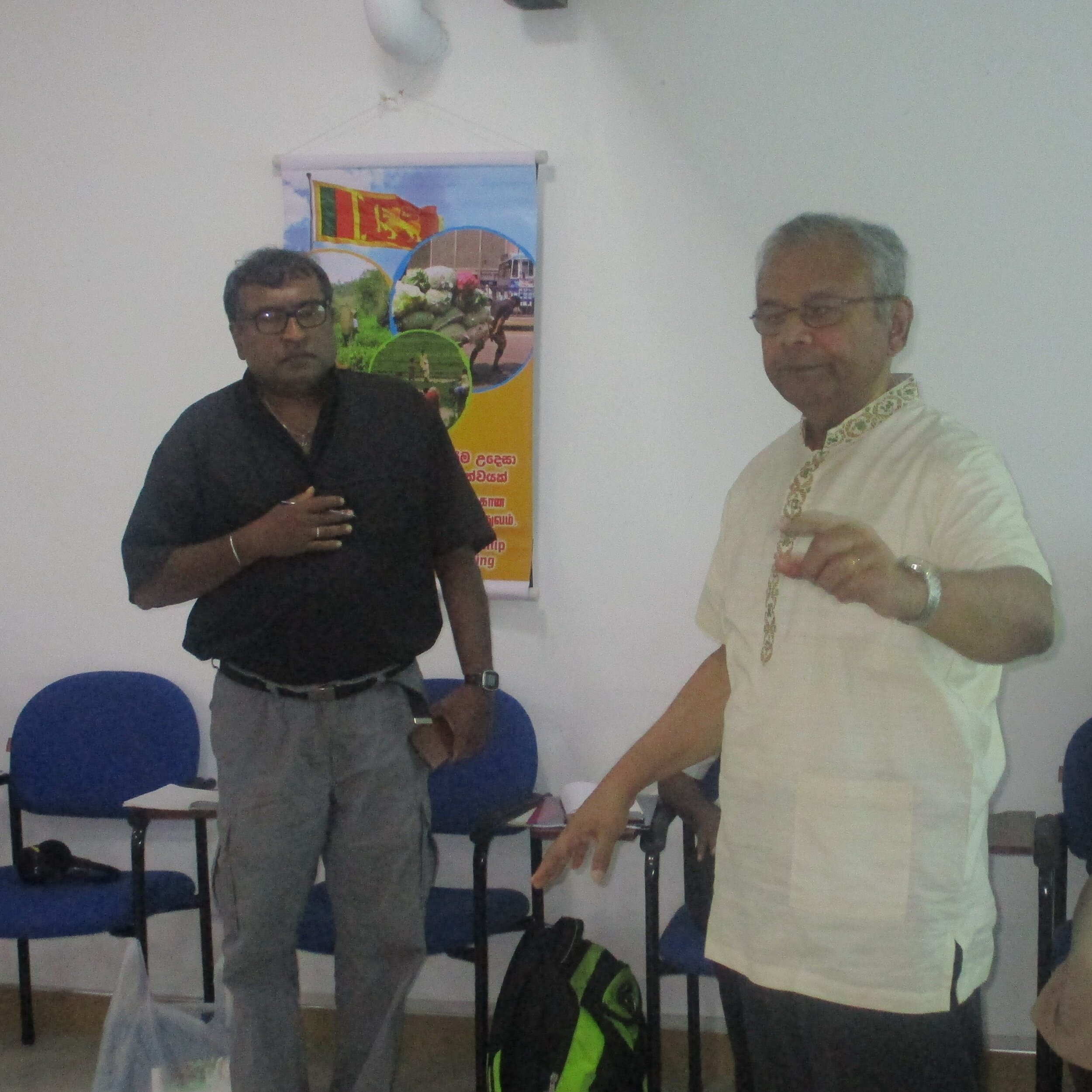Rev. Enoch at an OMNIA Training of Trainers in February 2020 in Kandy, Sri Lanka
Kandy, SRI LANKA (May 9, 2020) — OMNIA mourns the loss of Rev. Punitharaja Enoch who died May 8th of a heart attack at the Jaffna hospital. He was one of OMNIA’s Interfaith Peacemaker Team leaders in Jaffna, Sri Lanka. In February 2020 he participated in a Training of Trainers event in Kandy, where he committed to train others to participate in Interfaith Peacemaker Teams.
The following is an appreciation written by Bishop Kumara Illangasinghe, OMNIA’s National Coordinator in Sri Lanka.
It is with great sadness and loss that we have to record the passing on of the Rev Punitharajah Enoch of the American Ceylon Mission in Sri Lanka. Rev Enoch has served the Church in Sri Lanka and the Christian Community with much dedication and love. His love for God’s people was evident in the way he moved with them and made himself available to them at their times of need. Because of such love, his ministry among them was comprehensive and fulfilling. The humility with which he was serving among them, was exemplary. We are confident that Enoch offered creative leadership, when he was called to be the Chairperson of the American Ceylon Mission Church.
My association with him was very short. I got to know him as a leader of the OMNIA Institute for Contextual Leadership, in the North of Sri Lanka. He had grasped well the OMNIA concept of ‘all encompassing’ approach and attitude. OMNIA’s method of ‘Bottom up’ rather than ‘Top down’ learning, was attractive to him. Organising people was close to his heart, which was clearly visible in his speaking and preaching. He was loved by the people whom he served and he enjoyed a wonderful freedom in their midst. He was very well convinced, that he was called by God to serve the people in the community and was not willing at any stage, even during the times of great difficulty and insecurity in the North, to desert the people and be away from them.
Pictures of Rev. Enoch at the Training of Trainers event in Kandy in February 2020
I first met him in 2019, when I attended the Advanced Training Programme of the OMNIA Institute, in Jaffna. He had already gone through the Basic training programme and was deeply committed and interested in serving the community. His willingness to learn and equip himself to serve God’s people was remarkable. Enoch’s engagement in words and action with those who trained him and the desire to possess clarity of understanding, was solely characteristic. He was always willing to struggle hard to achieve the best.
In February this year, he was chosen and invited to be trained as a Trainer for the OMNIA programme in Sri Lanka, especially concentrating in the North and the East, which he accepted with great interest and travelled to Kandy. The enthusiasm with which he participated, was not only encouraging but also rewarding. We noted that he always looked to the future. While anticipating the kind of challenges that he may face in the future in such training, he was keen to learn and equip himself to creatively deal with such situations. Enoch’s ability and willingness to relate to the problems and the struggles of the people in the North, was commendable. His preparation to be a trainer and a leader in the community was in such a context. He was truly and deeply rooted contextually. That was both a psychological as well as a practical and a realistic approach.
We take this opportunity to thank his family for sharing him with the larger community. We also convey our heartfelt condolences and the assurance of our prayers to the family. We are ever grateful for all what he has been to us, the Church and to the larger community, in this nation.
We thank God for God’s concern for the people in need and who are powerless, that God was willing to share Enoch with us and the people, even for a short period of time. That probably was in God’s plan, the period in which his services were most needed. We are grateful for his life and ministry and pray that his soul will Rest in Peace and Rise in Glory. What a great loss to say goodbye to him at his prime age.
Bishop Kumara Illangasinghe
9th May 2020. Kandy




